By Honorary Reporter Viviane Vaz from Belgium
Photos= Viviane Vaz
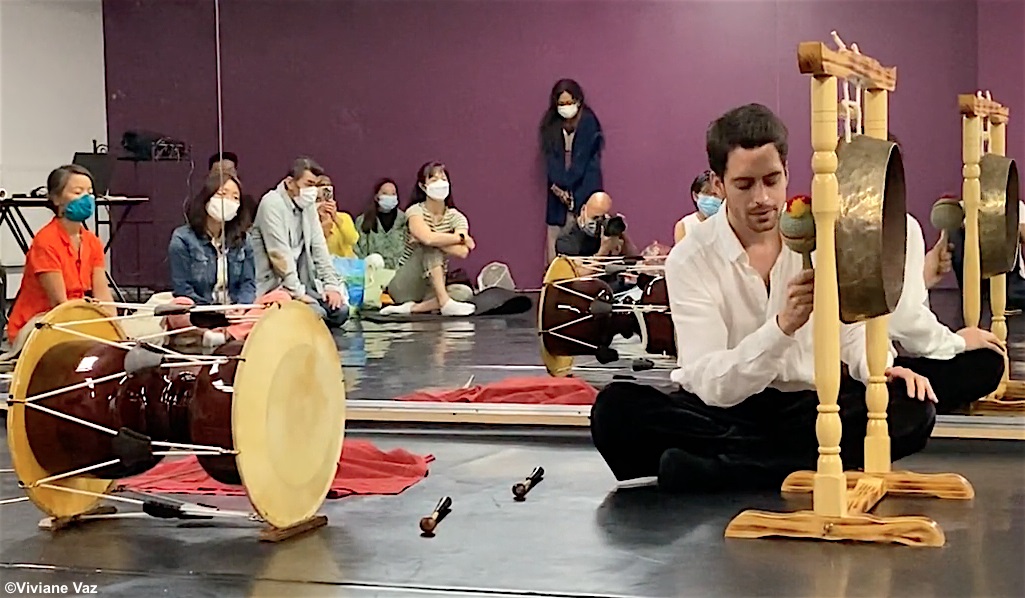
Ethnic Korean adoptees in Belgium looking for their roots try playing traditional Korean instruments.
The nongovernmental organization (NGO) Jeong Belgium on July 26 hosted an event in Brussels on the role of DNA testing for ethnic Korean adoptees searching for their birthparents and invited the Korean NGO 325Kamra to hold a conference.
"This is my last resource, the last thing I can do," said Kalinka De Mets, an adoptee born in Korea in 1964. "Those days were hard times for Koreans since they still suffered from the aftermath of the Korean War."
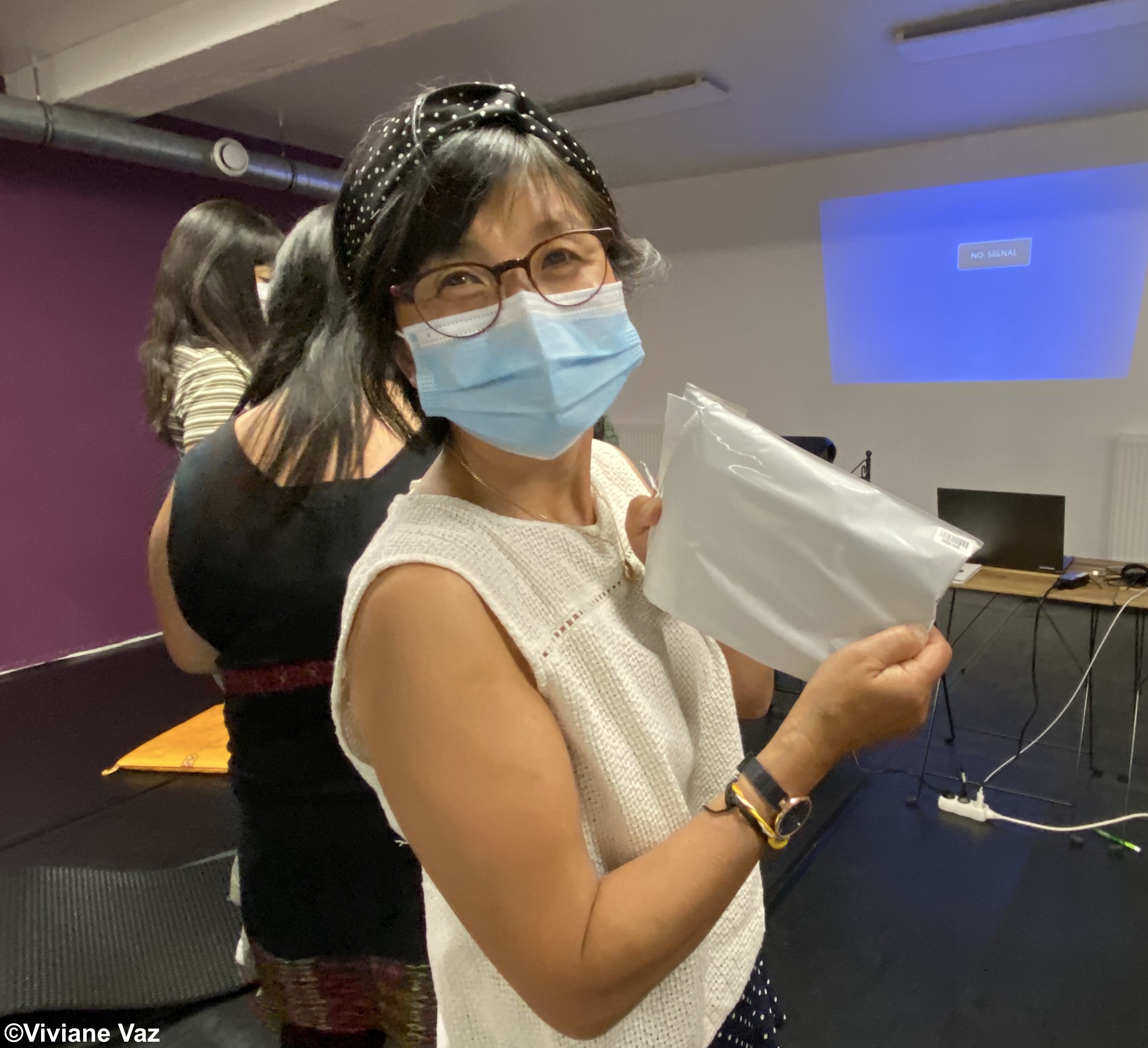
Kalinka De Mets hopes to find her biological family in Korea through a DNA test.
She said many parents were under heavy social pressure to give up their children for adoption, or even suffered the loss or kidnapping of their children amid harsh living conditions.
The event had a limited number of attendees to comply with Belgium's social distancing measures due to COVID-19. In addition, everyone had to disinfect their hands and wear masks.
"I knew it was going to be difficult to organize (the event) due to COVID-19, but I'm glad we did it," said Leslie Maes, an adoptee born in Busan and the founder of Jeong Belgium. He went beyond looking for his birthparents to help other adoptees by setting up the NGO.
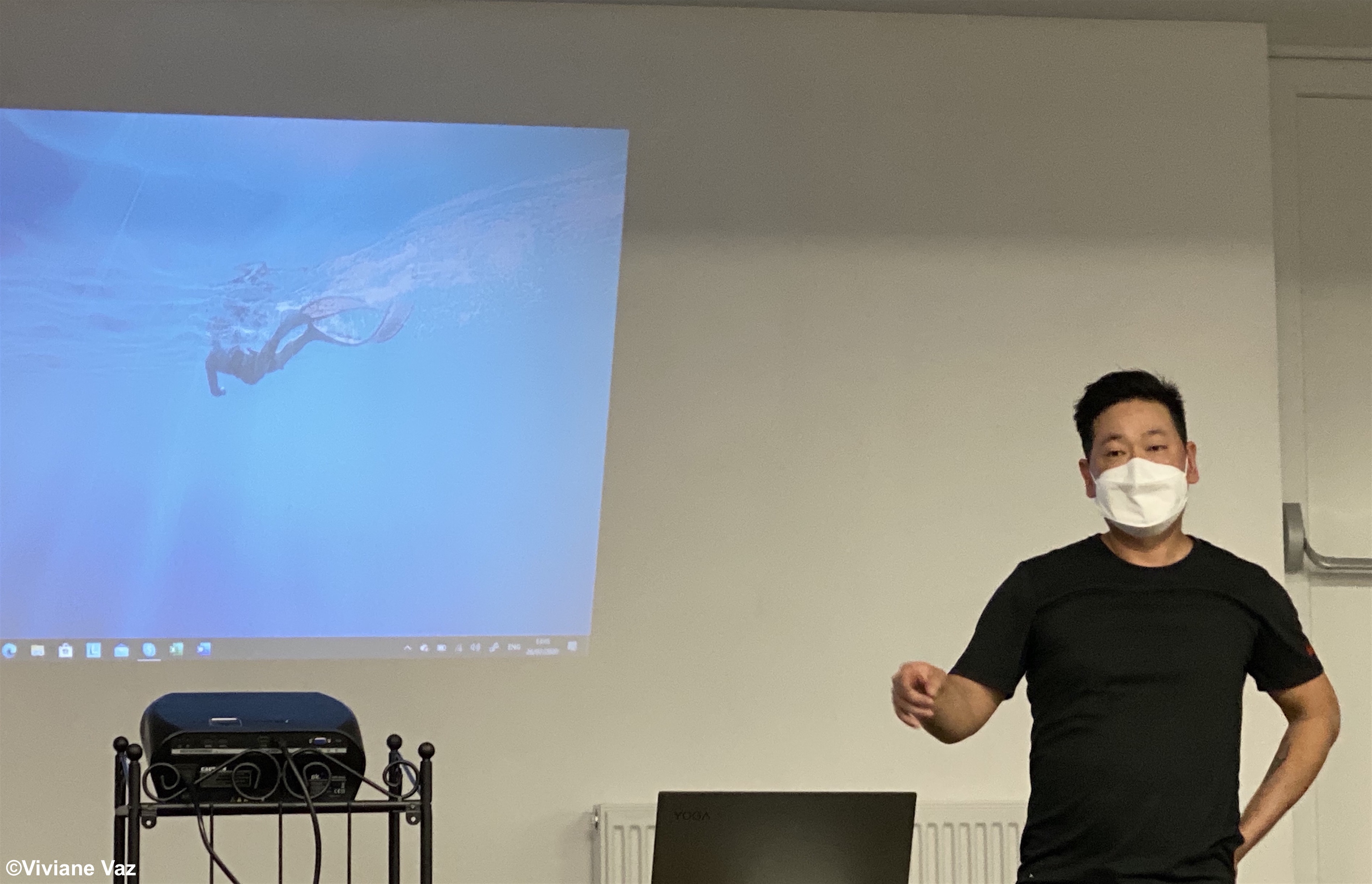
Leslie Maes set up Jeong Belgium, a network of ethnic Korean adoptees in Belgium.
Jeong Belgium also gives a taste of Korean culture to adoptees in the country. The event had performances of gugak (traditional music), the janggu (traditional drum) and the jing (large metal gong), and allowed participants to try playing the instruments.
Cecile Marie traveled 11 hours by bus from Lyon, France, to Brussels to attend the event and take a DNA test. Born Jo Hyeon-an in Chuncheon, Gangwon-do Province, she decided to search for and see her biological mother without any judgment. "I know the encounter can be either beautiful or not. Either way, I've decided to meet her and I'm ready for it," she said.
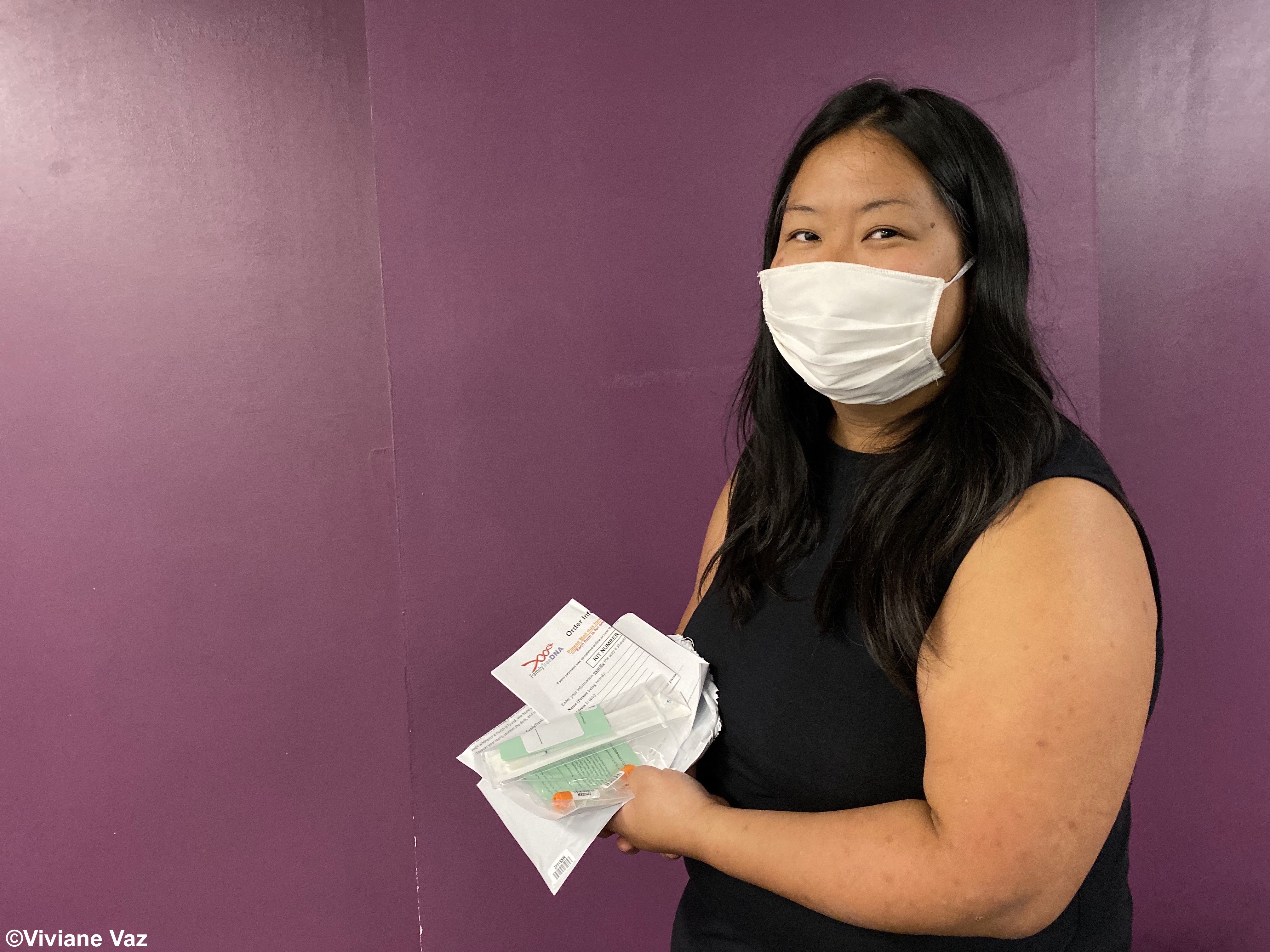
Cecile Marie receives a DNA test kit during the event.
Friendly family ties are what Ki-suk Lauwens emphasized in his speech at the event. "I feel like I have three families now: my Belgian family, my Korean family and this community," he said. Lauwens grew up thinking that he was abandoned by his Korean parents and was disinterested in finding them. Then a friend exhorted him to double-check the DNA database of Korean police, saying Lauwens might have been registered as an "abandoned" child but went missing.
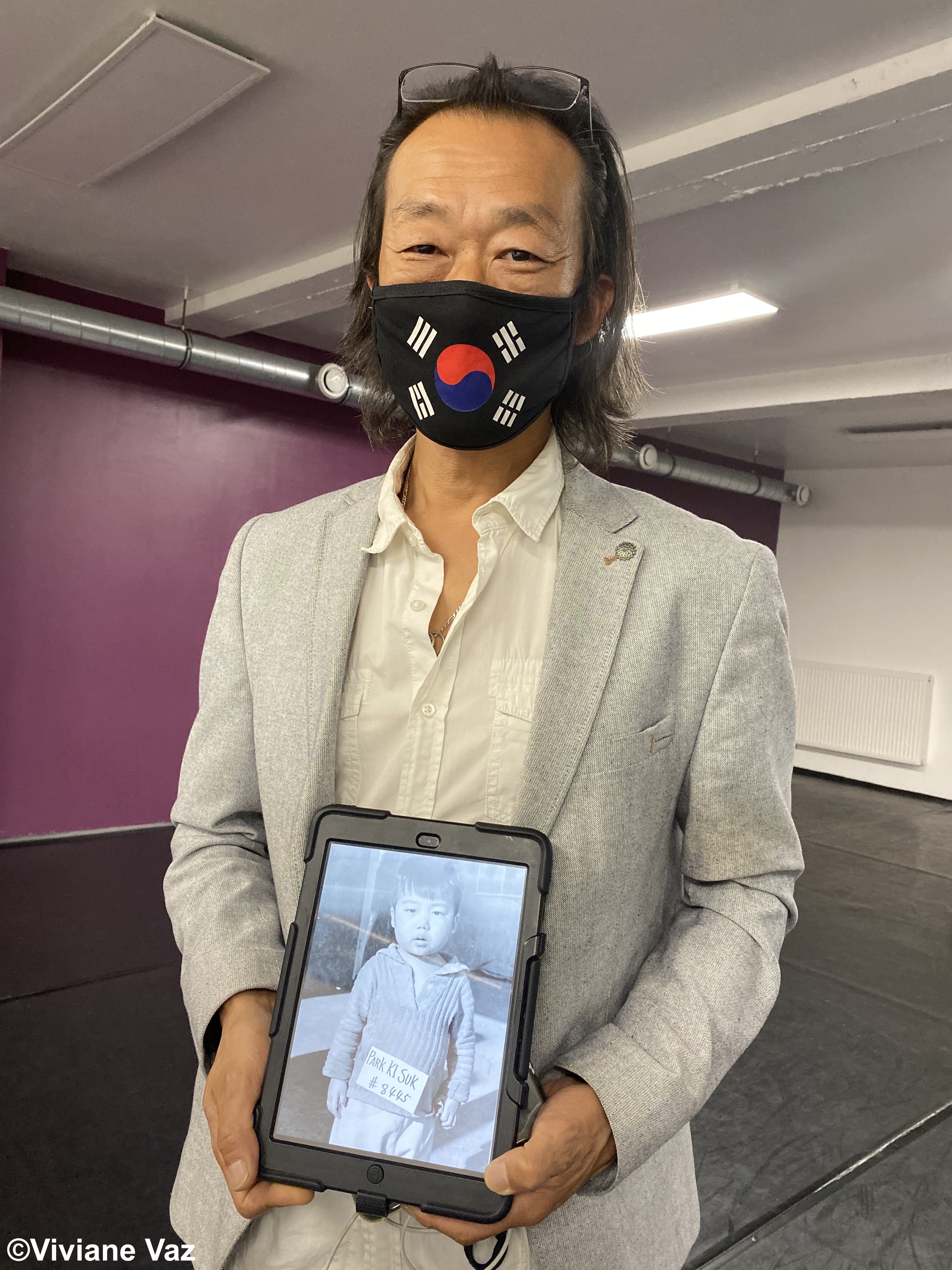
Ki-suk Lauwens shows people a photo of him when he was 3.
After reporting his case to police, he received a call from Korea that his mother lost him at a park in Daegu when he was 3 and had been searching for him for 48 years. He cannot go see her in Korea now because of COVID-19, but urged adoptees to stay optimistic. "My point is that even if your papers say you were abandoned, there's no reason to give up hope. Keep searching," he said.
A community is also in Seoul for adoptees living in the Korean capital. Helle Thaarup, who was adopted by a Danish family, traveled to Korea with them, and three years later, she moved to Korea permanently. She joined the adoptee community there and helps other adoptees find their birth families as director of operations for 325Kamra.
Thaarup has not found her Korean parents but is confident of doing so. "My adoption documents said I was found in Hongseong-gun County, Chungcheongnam-do Province. I thought that moving to Korea would help me a lot to find my true self.
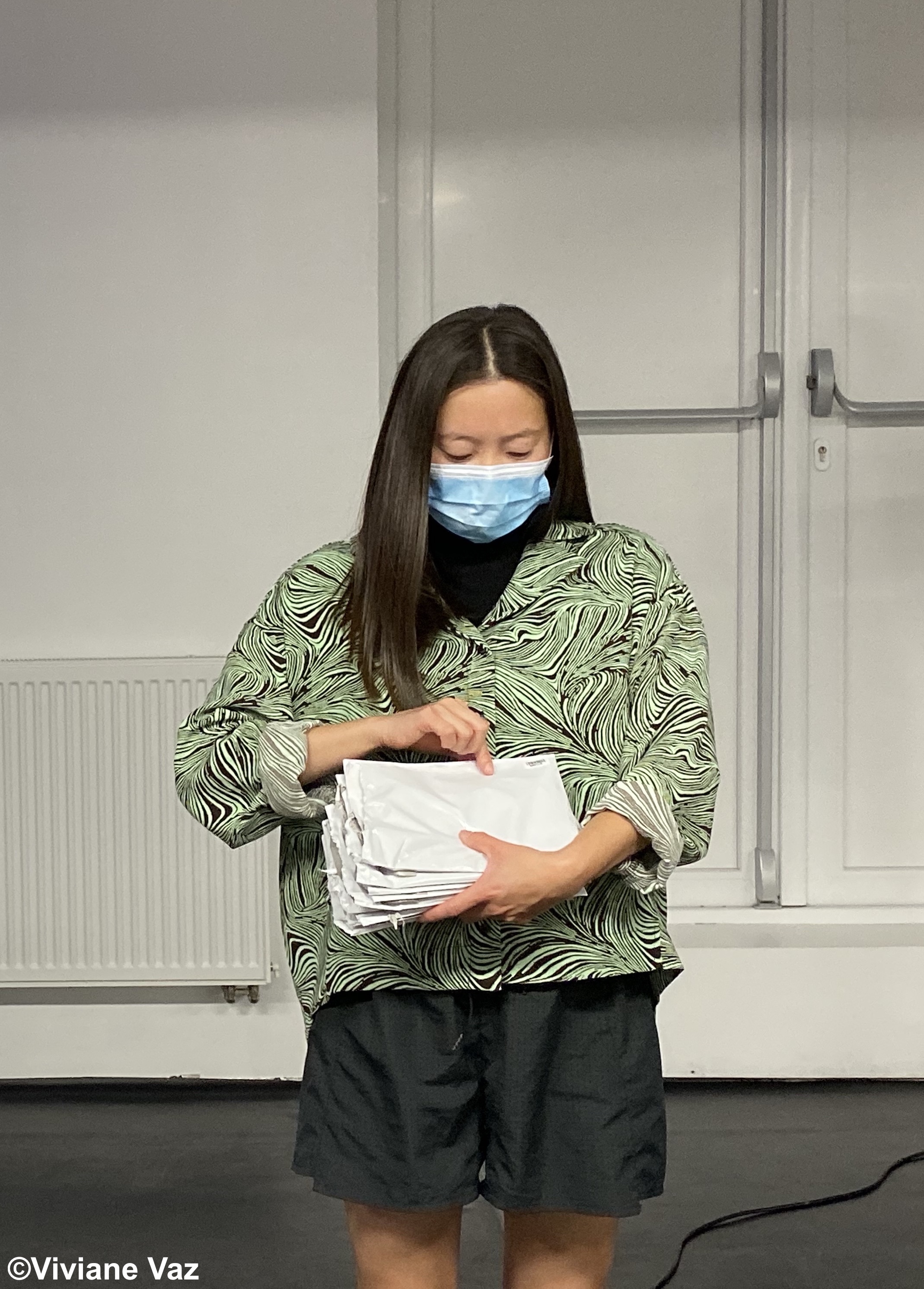
Helle Thaarup gives an explanation of the DNA test kit.
In addition, Korea has many connections that adoptees seek, not just their biological parents, she said. Thaarup said she decided to live in Korea to better understand herself while hoping to find her birth family, adding, "It's deeply rooted in the human mind and soul that we need to know where we're from and have a connection with it."
chaey0726@korea.kr
*This article is written by a Korea.net Honorary Reporter. Our group of Honorary Reporters are from all around the world, and they share with Korea.net their love and passion for all things Korean.